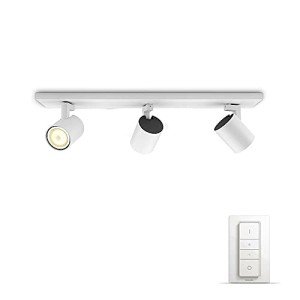You'll Never Guess This Buy Industrial Lighting UK's Benefits
Buy Industrial Lighting in the UK: A Comprehensive Guide
In the ever-evolving world of industrial operations, sufficient lighting is essential for security, performance, and efficiency. In the UK, services face special challenges that necessitate specialized lighting solutions tailored for industrial environments. This post provides an in-depth appearance into the factors to consider for buying industrial lighting, the types readily available, and some frequently asked concerns to streamline the purchasing procedure.
Understanding Industrial Lighting
Industrial lighting encompasses a wide variety of fixtures, from high bays utilized in warehouses to explosion-proof lights for dangerous areas. Picking the right lighting can enhance exposure, reduce safety risks, and even minimize energy expenses.
Secret Considerations for Industrial Lighting
When purchasing industrial lighting, a number of aspects need to be thought about:
- Type of Facility: Assess whether the lighting is for a factory, warehouse, or an outdoor location.
- Function: Determine whether the lighting is for general lighting, task-oriented activities, or safety/security.
- Energy Efficiency: Opt for energy-efficient lights to decrease functional costs.
- Regulatory Compliance: Ensure that the lighting satisfies UK safety and quality standards.
- Sturdiness: Industrial environments can be severe; lighting products need to hold up against conditions like moisture, dust, and vibrations.
- Installation Considerations: Understand the requirements for mounting fixtures in high or hard-to-reach areas.
Types of Industrial Lighting
There are numerous types of industrial lighting fixtures offered in the UK. Below are a few of the most typical types:
Table 1: Types of Industrial Lighting
Type
Description
Finest Use Cases
High Bay Lights
Utilized for big spaces with high ceilings, such as warehouses.
Storage facilities, factories
Low Bay Lights
For lower-ceiling environments where basic illumination is required.
Retail areas, making
Flood Lights
Provides broad, even light; ideal for outdoor settings.
Parking lots, outdoor offices
Task Lights
Adjustable and movable; focus light on particular locations.
Assembly lines, examination areas
LED Strip Lights
Flexible and energy-efficient.
Shelving, signage
Explosion-Proof Lights
Created for locations where flammable products are kept or used.
Chemical plants, oil refineries
Benefits of LED Industrial Lighting
LED technology has actually transformed industrial lighting, using many advantages:
- Energy Efficiency: LEDs consume considerably less power compared to traditional incandescent or fluorescent lighting.
- Long Lifespan: LED bulbs can last approximately 25,000 hours or more, considerably lowering maintenance expenses and downtime.
- Low Heat Emission: Unlike traditional lights, LEDs emit minimal heat, which can enhance security, particularly in hot workplace.
- Versatility: Available in numerous colors and strengths, making them suitable for varied applications.
- Instant Start-Up: LED fixtures supply full brightness immediately, getting rid of the flickering hold-up connected with some conventional lights.
Acquiring Industrial Lighting in the UK
When sourcing industrial lighting in the UK, businesses have numerous choices. Developing Buy Smart Lighting UK purchasing technique will enable purchasers to make informed choices.
Steps for Purchasing Industrial Lighting
- Evaluation of Requirements: Evaluate the specific lighting needs based upon the type of industrial center and activities carried out.
- Budgeting: Determine the spending plan for buying not simply the fixtures but also setup and upkeep.
- Research Suppliers: Investigate respectable suppliers that focus on industrial lighting options.
- Evaluate Product Quality: Look for certifications and testimonials to guarantee product sturdiness and compliance.
- Think about Sustainability: Opt for suppliers that offer environmentally friendly lighting services.
- Installation Support: Check if the supplier uses installation services or guidance.
Where to Buy Industrial Lighting in the UK
Here's a list of recommended suppliers and retailers in the UK:
- LightHouse: Specializes in a wide range of industrial lighting services and offers both online and physical shopping.
- ElectricalDirect: A thorough source for all kinds of industrial lighting fixtures and parts.
- Amazon UK: Features a wide range of industrial lighting items ranging from budget plan alternatives to high-end services.
- B&Q:&A well-known home improvement store that likewise brings a selection of industrial-grade lighting.
- eBay: A marketplace where users can discover new and secondhand industrial lighting items at affordable rates.
Regularly Asked Questions (FAQs)
1. What is the distinction in between high bay and low bay lights?
High bay lights are created for areas with ceilings greater than 15 feet, offering intense lighting for large locations. Low bay lights, on the other hand, appropriate for areas with lower ceilings, usually ranging from 8 to 15 feet.
2. How do I know which type of industrial lighting I need?
Evaluate your facility's height, design, and the particular tasks being performed. Engaging with a lighting specialist can likewise supply tailored guidance based on your special requirements.
3. Are LED lights worth the financial investment?
Yes, while LED lights may have a higher upfront expense, their energy effectiveness, durability, and lowered maintenance needs usually cause significant cost savings over time.
4. What regulatory standards should industrial lighting satisfy in the UK?
In the UK, industrial lighting needs to abide by British Standards (BS), which consist of standards on health, safety, and efficiency standards for lighting systems.
5. Can I set up industrial lighting myself?
It depends upon your knowledge and regional regulations. While some businesses may select DIY setups, it's often recommended to employ a qualified electrical contractor to guarantee security and compliance.
Purchasing industrial lighting in the UK requires thoughtful consideration of numerous factors, from the type of facility and lighting requires to budget and long-term effectiveness. Services can profit of improved safety and productivity by carefully evaluating item choices and engaging with respectable suppliers. As the demands of the industrial landscape progress, staying notified on lighting developments will make sure that companies remain competitive and certified.
